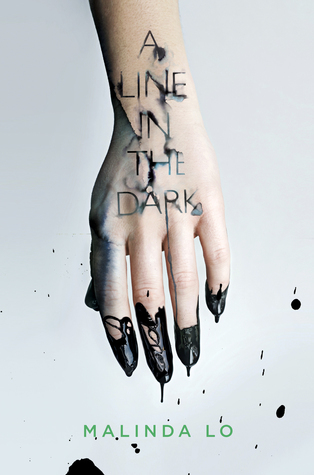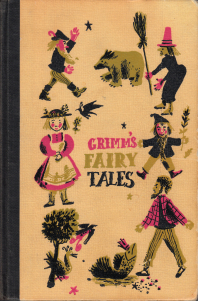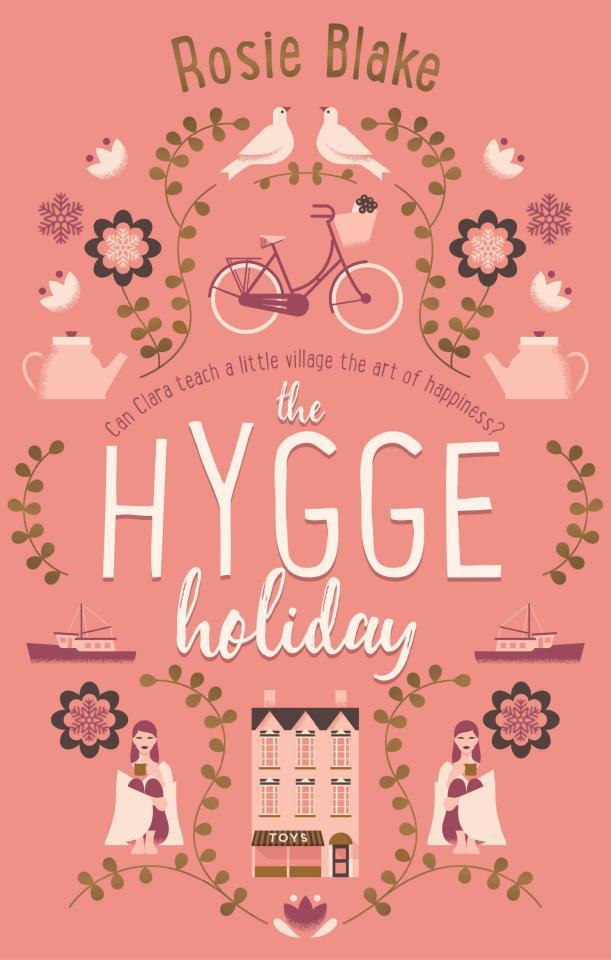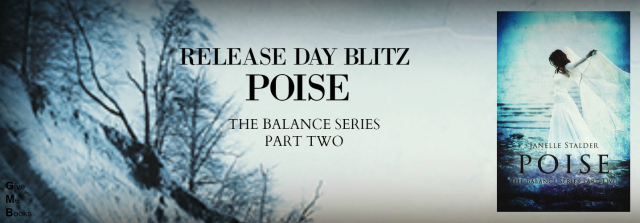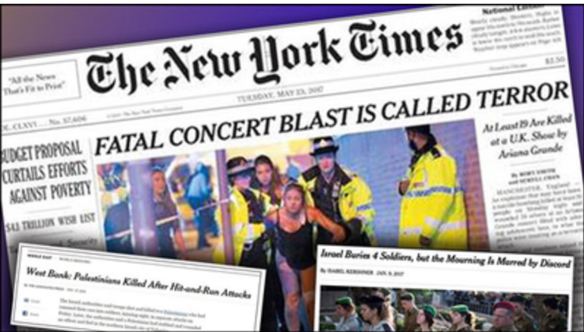
Sneak away and enjoy two perfectly paired films, mood food and a classic attitude that’ll carry you through ’til the next rendezvous…


I don’t think I’m unique.
Just the opposite.
Count me among the many who just do not have the time to do everything that needs to get done before December 25th. My regular Double Feature Rendezvous column just ain’t gonna fly this month. Do you have an extra 4 hours in your hectic schedule to devote to watching two (admittedly awesome) films? Neither do I!!
But I’d still like to recommend to you my all-time-favorite holiday classic film. One that you can watch while you sip egg nog, wrap presents, or address your Christmas cards.

It’s the delightful Christmas in Connecticut (1945) which stars Barbara Stanwyck as Elizabeth Lane. Elizabeth writes the most successful homemaking column in America. Only problem is she has no home and she can’t boil water! Unaware of this, her publisher, Alexander Yardley (Sidney Greenstreet) forces her to host a war hero, Jefferson Jones (Dennis Morgan) over the holidays. Cue the zaniness as love prevails among the farm animals and rural folk of Connecticut who provide additional home front flavor to this romantic comedy masquerading as a Christmas film. Is it all too unbelievable? Well, once you see Dennis Morgan in uniform {swoon}, you’ll understand why what happens, happens.
To add to your viewing enjoyment, here’s a little cultural context for 7 of the words and/or phrases used in this film:
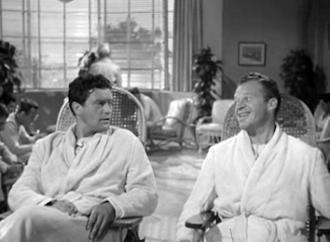
1. “Give her the old magoo.” What the heck does that mean? This is the advice that Jones’ shipmate, Sinkewicz (Frank Jenks) gives him in the beginning of the film. The two are convalescing in a Naval Hospital following 18 days on a lifeboat after their ship was torpedoed. The ‘magoo’ is how ‘Sinky’ got the nurse to give him steak dinners, whereas Jones is only getting milk. The old ‘magoo’ means turning on the charm to get what you want.
2. Felix is horrified when he see ‘Liska’ in a mink coat. Why? For a single woman in the 1940s to have an expensive mink coat, when she herself didn’t come from a wealthy family, often meant that she had a sugar daddy. That’s why Elizabeth immediately says, “Don’t worry, I’m paying for it myself.”
3. Why is Felix talking points when going over his recipes? In America during WWII certain food items were rationed. There was a point system in place that allowed only so much meat or sugar, for example, per family.
4. “Every time I’d open my mouth he talked. I felt like Charlie McCarthy.” Who? Charlie McCarthy was the dummy-half of a hugely popular ventriloquist act. The human-half was Edgar Bergen, Candace’s dad. Edgar & Charlie had their own successful radio program from 1937 to 1956. Think about that. A ventriloquist act. On the radio.
5. “Fat Man.” When Felix (S.Z Sakall) says this under his breath to Mr. Yardley (Sidney Greenstreet) it’s an inside joke with the audience. ‘The Fat Man’ was how Greenstreet’s character, Kasper Gutman, was referred to in the hugely popular film The Maltese Falcon (1941).
6. “Everything is hunky-dunky.” The saying of the day was ‘hunky dory.’ It meant everything is going great. But Felix, the true cook of the story, is a Hungarian immigrant, and though he says it with great relish, he says it wrong.
7. Macushlah. What kind of a name is that? Elizabeth’s cow’s name, Macushlah–which is wicked fun to say!–is actually an Irish Gaelic term of endearment. The correct spelling is “mo chuisle,” and literally means my pulse. It’s from a longer phrase: a chuisle mo chroi: Pulse of my heart. As in the cow is “mo chuisle.” It gives new meaning to the film’s line, “Moonlight, snow and a cow.”
And a little video clip that highlights one of my favorite characters, the housekeeper, Norah. No one can put Mr. Yardley in his place like she can! –Wait. She is talking about flapjacks, right? Merry Christmas everyone!
Advertisements Share this:

